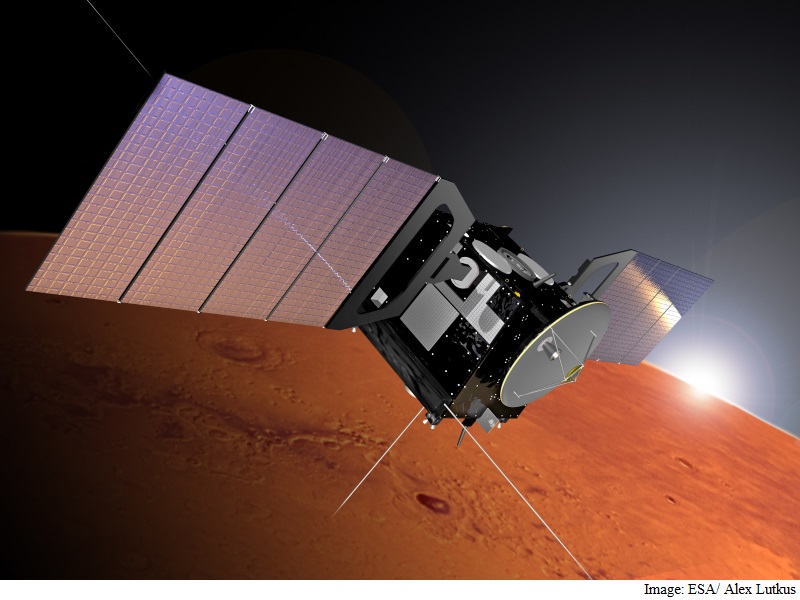- Home
- Science
- Science News
- Delayed ExoMars Mission Gets EUR 77 Million Boost
Delayed ExoMars Mission Gets EUR 77 Million Boost

In the first phase, the European Space Agency (ESA) and its Russian counterpart launched two probes bound for the Red Planet in mid-March but the next stage has been delayed by two years to 2020.
The cash boost has come from the project's main European partners Italy, the UK, France and Germany and will be used to offset the additional costs caused by the delay announced in May.
David Parker, the ESA's director of human spaceflight, told AFP: "We asked... the member states 'do you want to continue with this mission?'"
The next stage of the mission will see the launch of a European rover capable of drilling up to two metres (about seven feet) into the Martian surface in search of organic matter.
"It was an unanimous decision of the whole council to continue with this program," he said of the meeting held in Paris Wednesday.
"It is an important confirmation of the support of the member states to the project. I am positive."
The double ExoMars mission will complement the work of Nasa's Curiosity rover, which has been criss-crossing Mars' surface for more than three years.
Space has been one of the few areas of cooperation between Moscow and the West that has not been damaged or derailed by ongoing geopolitical tension in Ukraine, Syria and elsewhere.
For the latest tech news and reviews, follow Gadgets 360 on X, Facebook, WhatsApp, Threads and Google News. For the latest videos on gadgets and tech, subscribe to our YouTube channel. If you want to know everything about top influencers, follow our in-house Who'sThat360 on Instagram and YouTube.
Related Stories
- Samsung Galaxy Unpacked 2025
- ChatGPT
- Redmi Note 14 Pro+
- iPhone 16
- Apple Vision Pro
- Oneplus 12
- OnePlus Nord CE 3 Lite 5G
- iPhone 13
- Xiaomi 14 Pro
- Oppo Find N3
- Tecno Spark Go (2023)
- Realme V30
- Best Phones Under 25000
- Samsung Galaxy S24 Series
- Cryptocurrency
- iQoo 12
- Samsung Galaxy S24 Ultra
- Giottus
- Samsung Galaxy Z Flip 5
- Apple 'Scary Fast'
- Housefull 5
- GoPro Hero 12 Black Review
- Invincible Season 2
- JioGlass
- HD Ready TV
- Laptop Under 50000
- Smartwatch Under 10000
- Latest Mobile Phones
- Compare Phones
- Moto G15 Power
- Moto G15
- Realme 14x 5G
- Poco M7 Pro 5G
- Poco C75 5G
- Vivo Y300 (China)
- HMD Arc
- Lava Blaze Duo 5G
- Asus Zenbook S 14
- MacBook Pro 16-inch (M4 Max, 2024)
- Honor Pad V9
- Tecno Megapad 11
- Redmi Watch 5
- Huawei Watch Ultimate Design
- Sony 65 Inches Ultra HD (4K) LED Smart TV (KD-65X74L)
- TCL 55 Inches Ultra HD (4K) LED Smart TV (55C61B)
- Sony PlayStation 5 Pro
- Sony PlayStation 5 Slim Digital Edition
- Blue Star 1.5 Ton 3 Star Inverter Split AC (IC318DNUHC)
- Blue Star 1.5 Ton 3 Star Inverter Split AC (IA318VKU)

















